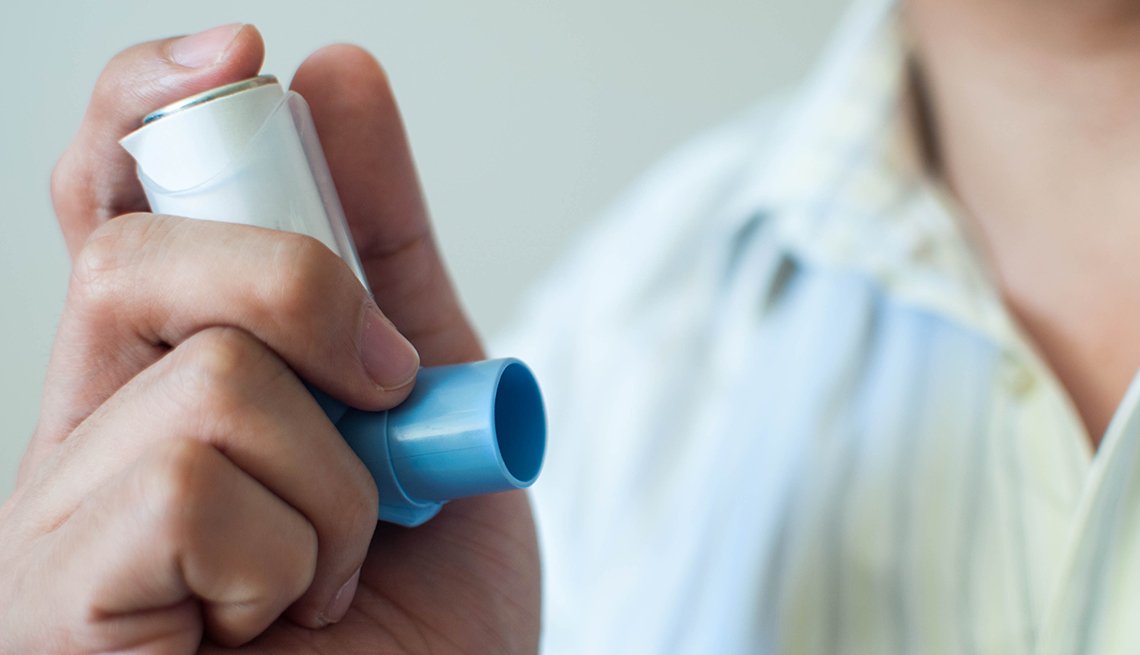Managing Asthma During the Winter Months

If you have asthma, you can have breathing problems any time of the year, but you may notice additional wheezing, coughing, or asthma attacks in the winter. What happens in winter to trigger your asthma? There are two main reasons: First, there are the cold, dry days of Iowa winters. Next, we have an increase in respiratory illnesses, such as colds, influenza, and COVID-19.
On the upside, you can take several actions that may help prevent a flare-up or asthma attack. Most of these are simple, common-sense ways to manage asthma. You may also consult with Dr. Stemmerman to put together a plan to manage your asthma if you have increased symptoms or attacks in the winter.
Get the flu shot and the COVID-19 vaccine
Whenever possible, you should prevent further stress on your lungs and heart by avoiding respiratory illnesses. Influenza and the COVID-19 coronavirus can be very hard on the lungs and body. Fortunately, vaccines are now available for both the flu and COVID-19. These shots greatly reduce the likelihood that you will contract either of these illnesses. Avoiding illness protects you from the additional challenges of managing your asthma.
Wash your hands and avoid touching your face
We have all learned some best practices for health due to the COVID-19 pandemic. The main lesson is to wash hands frequently and avoid touching your face. These practices have been helping many of us avoid getting the common cold, which can be difficult to manage for asthma sufferers. While there isn’t a cure or vaccine for colds, maintaining the 20-second handwashing routine all year long will help keep cold viruses at bay. Finally, keep your distance from people who are sick.
Wear a scarf or other face covering
While cold, dry air can trigger an asthma attack, you can warm that air and protect your lungs by wearing something over your nose and mouth. This warms the air coming into your body and reduces the stress of the cold air on your lungs. We’re all used to wearing masks with the pandemic. You could continue to wear your mask as well as a scarf to further warm the air you breathe and ease your winter asthma symptoms.
Limit your time outdoors
When the weather turns cold and the snow piles up outside, asthma can be triggered by a simple trip to the mailbox. Some people exercise outdoors, but that exposes you to the cold, dry air. Avoid that by exercising indoors instead. The pandemic has blessed us with many options for attending group exercise classes online. Opt for a yoga class on YouTube instead of a walk outside. Consider getting home cardio equipment—or dust it off and use it if you have it! Plan on outdoor activities when it gets warmer or when you can travel to a warmer destination.
Manage the humidity in your home
As relative humidity drops outside, it also decreases inside your home. If dry air makes your asthma symptoms worse, consider a humidifier for your home or the room where you sleep. Other benefits of humidifiers include reducing static electricity and making your home feel warmer. Several kinds of humidifiers are available. Remember that all humidifiers require regular maintenance to keep them clean for your health. Talk to Dr. Stemmerman about the type of humidifier that might be best for you.
Stay alert for flare-ups
Even if you stay inside, you should remain on the lookout for asthma symptoms and keep your medications handy. Your indoor air quality can also be a trigger for attacks, especially if you are sensitive to dust mites. Having a fire in the fireplace may seem cozy, but it can also trigger asthma in some people. Watch for wheezing, coughing, tight chest, shortness of breath, and waking up at night, and contact your doctor if your asthma symptoms worsen.
Get tested for allergies
One good thing you can accomplish in the winter is to get tested for allergies. Allergy testing is easier in the winter because people usually have fewer problems with their allergies. A person needs to stop taking allergy medications about five days prior to getting tested. So, it’s less difficult to stop taking antihistamines during the winter months to accommodate allergy testing. We encourage you to contact us for more details about allergy testing.
While asthma can make living a normal lifestyle more challenging in winter, it can be managed. Contact Infinity Medical Clinic for further guidance on how to better manage your asthma.

